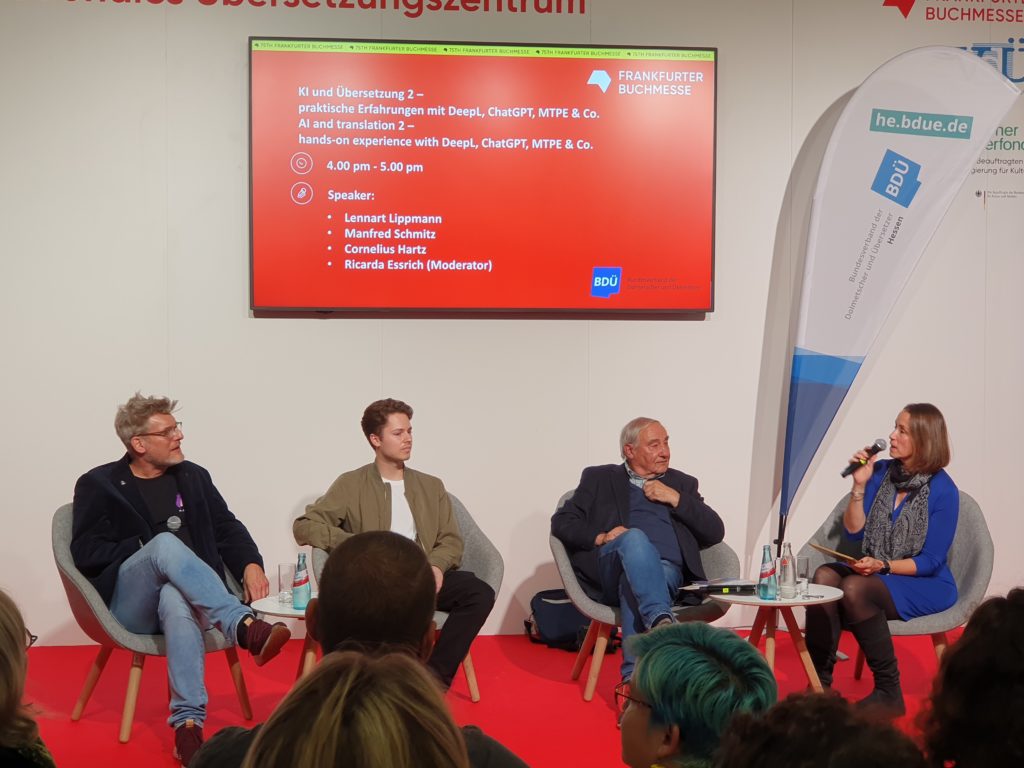
Every October, the Federal Association of Interpreters and Translators (BDÜ) in Germany, partnering with the German Association of Literary Translators (VdÜ), is represented at the world’s largest book fair in Frankfurt. Again this year, the fair featured an International Translation Centre with a stage as well as an information desk where associations could have interesting discussions with attendees on a wide range of translation-related topics, such as how one becomes a translator and where publishers can find qualified translators.
A particularly hot topic was the use of AI, and the International Translation Centre held various events covering its many aspects. BDÜ organised a panel discussion entitled ‘AI and translation – practical experience with DeepL, Google Translate & Co. and the future of the translation profession’, featuring BDÜ’s literary translation expert and book translator Ricarda Essrich in discussion with three fellow translators. The discussion focussed on the translation of all forms of literature – fiction, poetry, and non-fiction. The use of AI has become part of this field, too, although some publishers prohibit the use of such systems. In many cases, however, AI serves as a tool that requires users to have profound knowledge of how it works. In the hands of informed users, it may be helpful and could represent a useful source of inspiration.
All panellists rejected the idea of simply post-editing machine-translated literary texts because intensive post-editing is even more time-consuming than translating from scratch, and the result is often inferior. As panellist Cornelius Hartz put it in reference to the famous film quote from Billy Wilder’s One, Two, Three, such a translation is, ‘like a dead herring in the moonlight, it shines – but it stinks.’ Furthermore, machine translation systems often miss nuances and fail to transfer the individual style of an author appropriately into another language or to convey allusions, puns, sarcasm, or irony. The panel concluded that, when used by qualified translators, AI may lead to improved efficiency, but that this is not a reason to reduce translation fees. Any benefits gained need to remain with translators, who are continuously applying their extensive knowledge and experience as well as undergoing further training, but whose fees have been stagnant for years.
The Frankfurt Book Fair is over, but the need to talk about AI remains. Legal issues, such as copyright and intellectual property rights, also require careful attention. The question concerning the extent to which rights are infringed by using copyrighted texts to train AI and whether a translation created by AI is protected by copyright are becoming increasingly significant, as AI systems become more powerful. Translation associations, therefore, need to take a clear stance on such issues.
Norma Kessler, BDÜ
